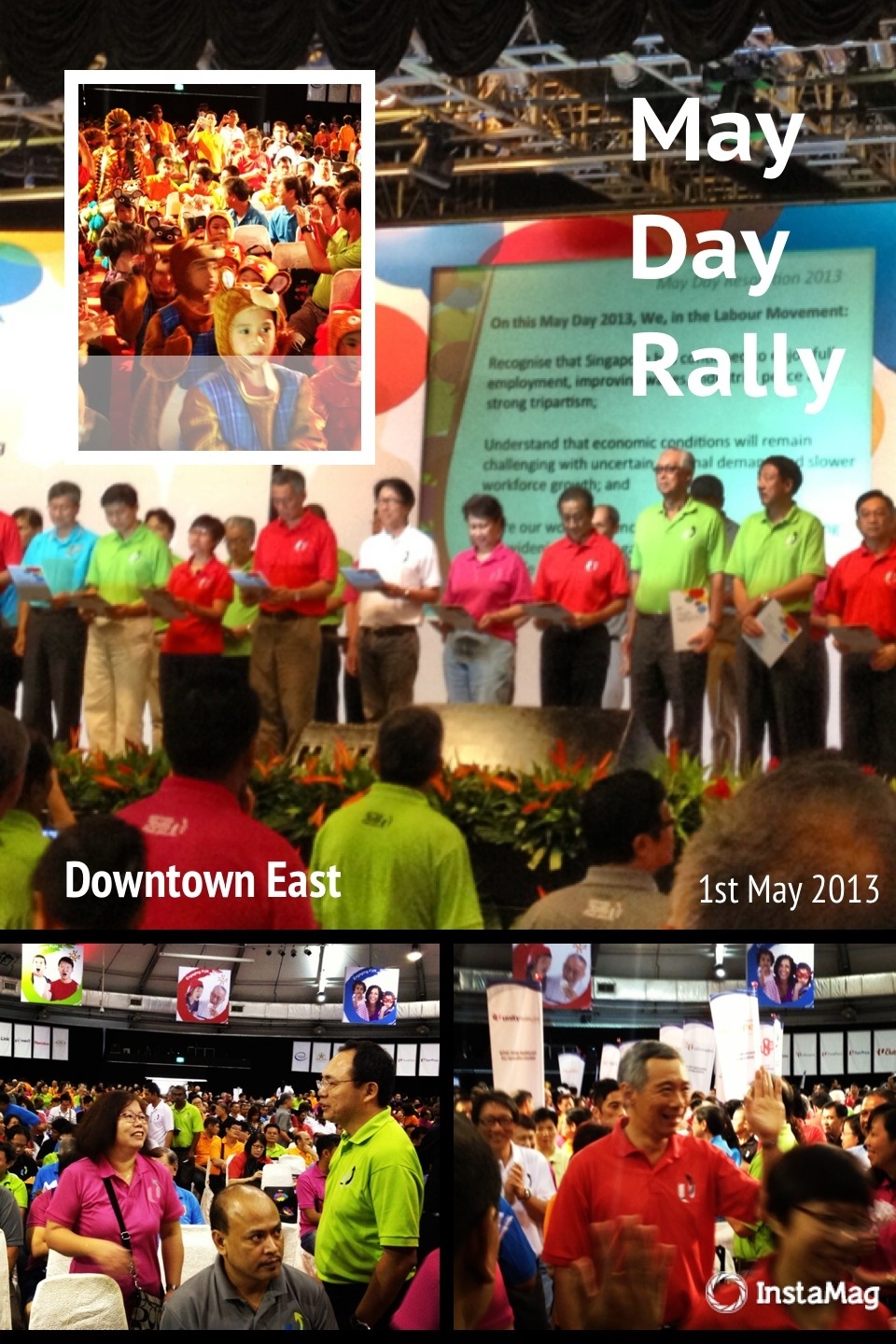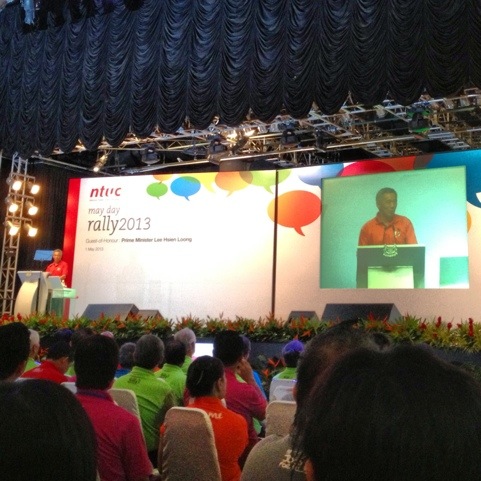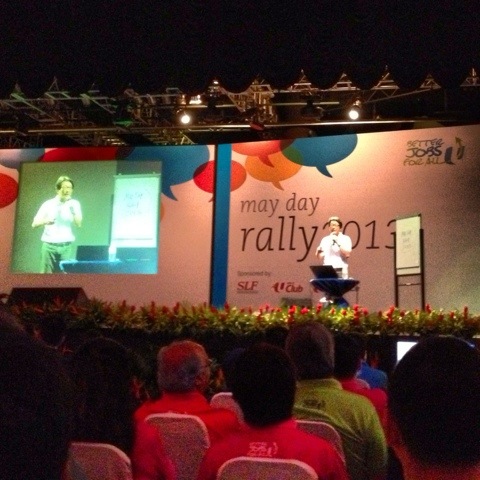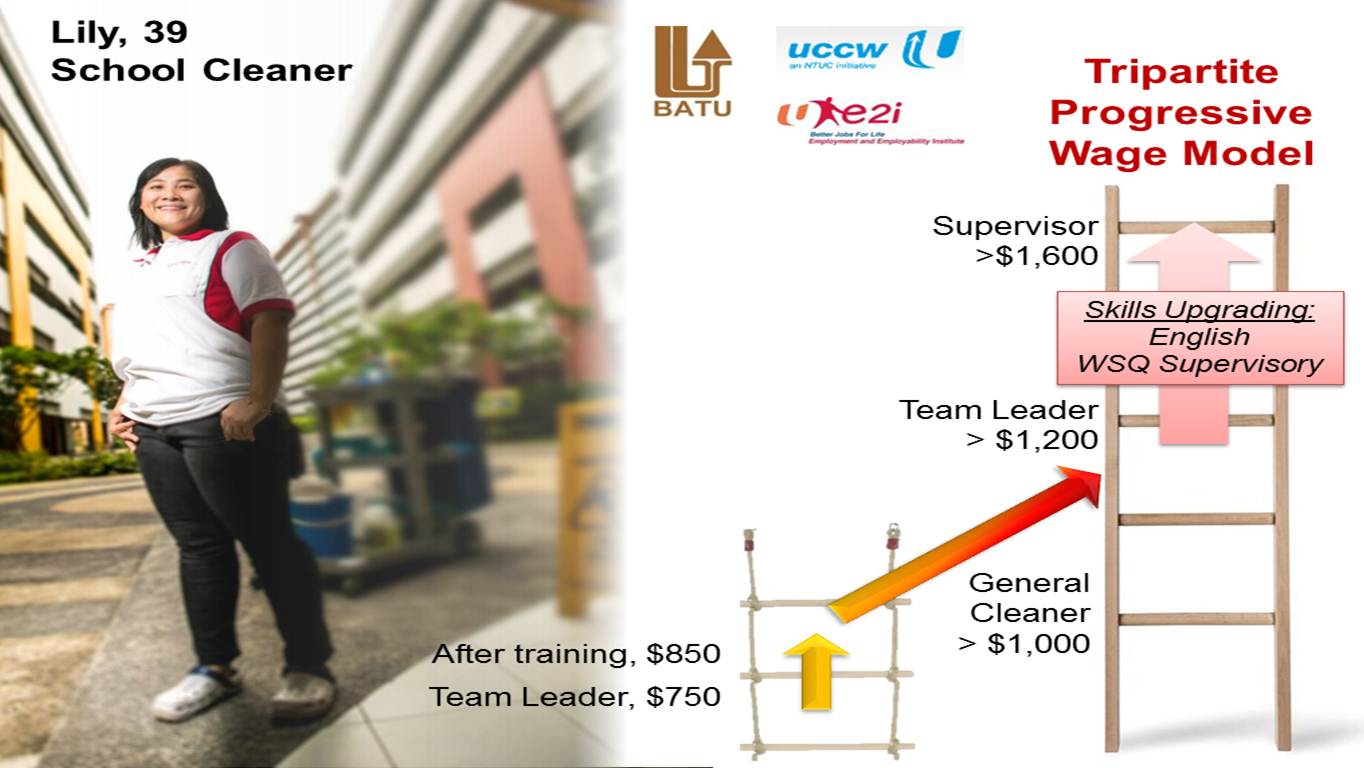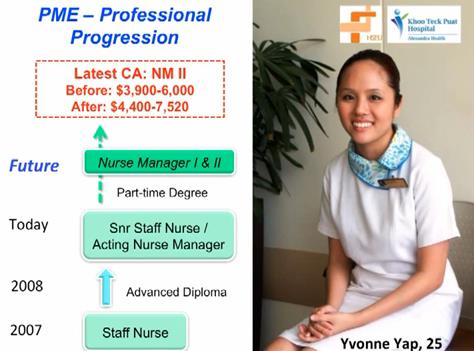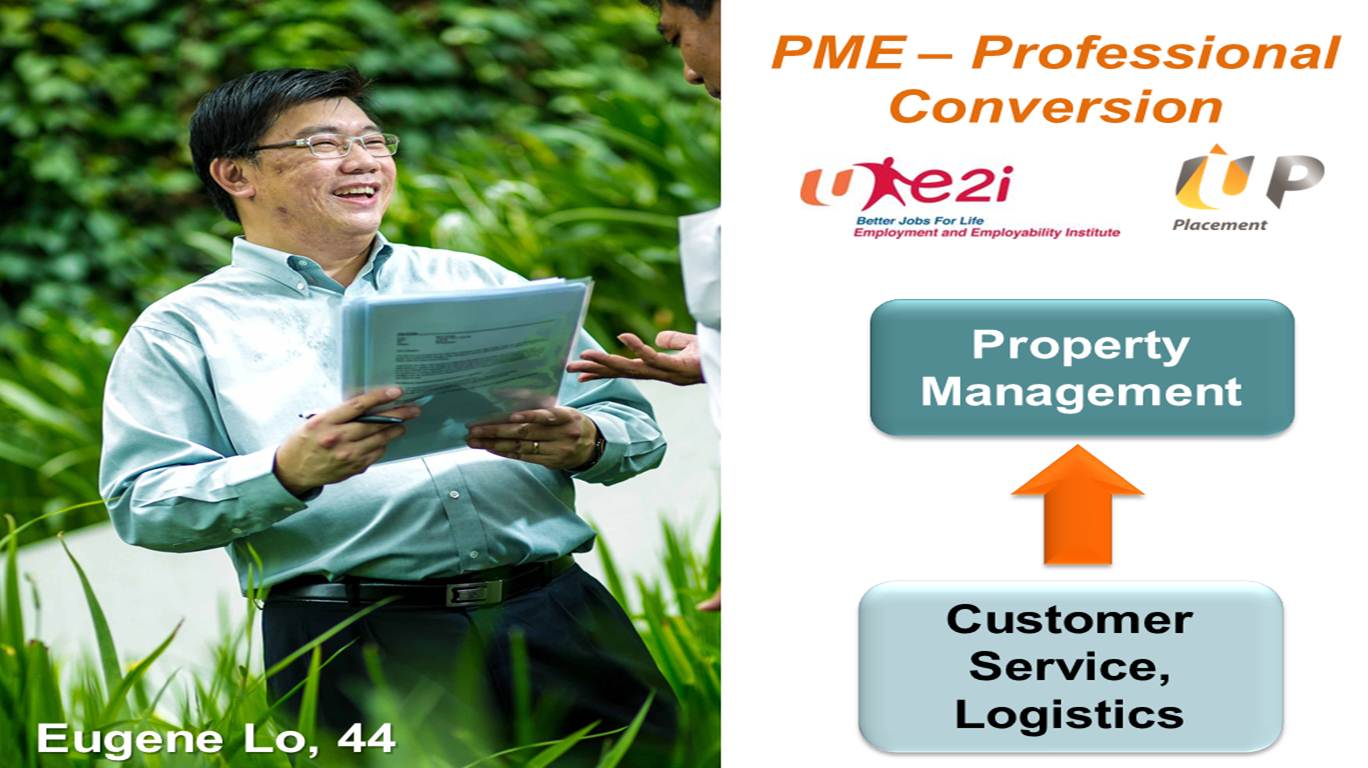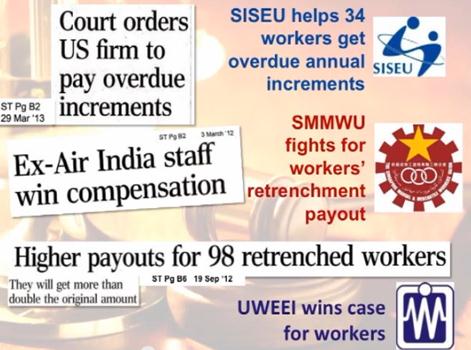As shared in NTUC May Day Rally 2013 Afterthoughts Part 1, my virgin experience at our nation’s labour movement rally held at D’Marquee, Downtown East was surprisingly pleasant! Expecting a serious and possibly boring government type of event, I was taken a back in a good way by the warmth and friendliness of fellow attendees from various local unions, social enterprises, communities and their tripartite partners.
Strategic ideas and thoughts from both NTUC Secretary-General Lim Swee Say and Guest of Honour, Prime Minister Lee Hsien Loong were shared on stage during the rally. They patiently explained the current global situation and how Singapore has fared compared to other countries against the global uncertainties.
Mr Lim Swee Say went further to explain Singapore transition from a “3 + 1 = 4” to a “1 + 2 = 3” economy and how he plans to enhance the nation’s competitiveness by becoming a Cheaper, Better, Faster (CBF) Economy. These 3 words –Cheaper, Better, Faster sounded so wrong at first that I have to keep explaining the concept in my write up to clear the air. Not to be mistaken as lower remunerations for workers, these 3 terms are actually solutions for businesses to be more competitive. Cheaper means to be more productive, to be better means to be more capable, to be faster means to be more adaptable.
Will Cheaper, Better, Faster (CBF) make workers’ lives more difficult?
Mr Lim Swee Say pointed out that while businesses and processes need to be Cheaper, Better, Faster, this should not be achieved at the expense of workers’ welfare. Companies should continuously strive to ensure that the workers’ jobs are also made Easier, Smarter, Safer (ESS) with innovation and workplace productivity drives.
What is the government doing to raise productivity?
According to Prime Minister Lee, the new Continuing Education and Training (CET) campuses are due to be completed in 2013 and Productivity Roadmaps have been devised to help specific industries upgrade themselves. Several new free trade agreements were negotiated to Singapore companies and workers an edge over competitors.
Reflecting on Singapore’s recent reduction of foreign labour, the government has also set aside $5.3 billion for Transition Support Package in Budget 2013 to help businesses, especially small and medium – sized enterprises (SMEs) to raise productivity and rely less on foreign workers.
However, there is a concern among many workers that embracing technology will lead to job losses.
We Need To Value Every Worker & Protect Their Rights
To protect the jobs of workers, Mr Lim shared that as an inclusive Labour Movement, Singapore needs to Value Every Worker (VEW) – regardless of age, gender, worker, profession or nationality.
Lily, the school cleaner with a pay raise of almost 50% thanks to PWM
Lily is a school cleaner whose pay, before PWM, had been marginally increasing by an average of $50 a year. After PWM was implemented, her salary jumped significantly from $850 to $1,200 and she can also increase her salary to $1,600 and beyond with skills upgrading.
Yvonne, the nurse who’s future pay range has increased with union’s help
It’s heartening to know that the union not only supports the rank and file folks but also white collar workers such as Yvonne. Her union negotiated with her hospital to increase the Nurse Manager II (her next position) pay range from $400 to as much as $1,520 higher than the original.
Eugene – the PME who switched career mid-life with e2i and UP for PME
After years of being a customer service professional in the Logistics industry, Eugene wanted to switch careers, but at his age it would not be easy. However, after he approached e2i – Employment & Employability Institution and went for retraining, UP For PME Placement got him a new role in Property Management. His example proves that there is no age barrier to new careers.
There are many more examples in the video above, and there is help out there for workers, but workers also have to be proactive and aware of the avenues available to them.
After learning how these individuals received better pay, better jobs and better work life balance (imagine a 4 day work week, example also in the video) as a result of the union’s work, I wonder if other countries could have achieved this level of co-operation among the government, employer and union to implement pro-worker policies.
What’s the point of joining a union?
Although the first public perception about union membership is about recreational perks, unions actually do fight to protect workers’ rights.
Even if here in Singapore we generally have decent working conditions (with the Employment Act to tell us our employment rights), unfortunately there were cases of errant companies not fulfilling their duties as employers.
My Afterthoughts
After the rally, I realised that many a times, Singaporeans have been looking at current affairs from an individualistic point of view. I myself have been guilty of looking at things only from the PME angle and neglecting the lower wage workers who actually need more support.
I am all for companies making tasks easier, smarter and safer but companies should not use this pretext to upgrade technology and fire workers on the sly. I am also particularly impressed with the benefits of Progressive Wage Model and how this breaks the invisible wage ceilings for low wage workers, allowing them to take on greater roles and responsibilities.
However, it is critical that such opportunities should be extended to all workers especially citizens. I have heard stories of good policies that did not manifest appropriately at company level where upgrading and promotion opportunities were given more to non-Singaporeans instead.
As a PME myself, I hope to see more being done for PMEs in Singapore. I explored the NTUC website and saw some of the initiatives that were running at the moment (such as helping PMEs plan for career progression, placement through career fairs and workplace representations) which are wonderful initiatives. But I hope to hear more and more success stories over the years.
For example, having more headhunters assisting PME union members with priority job matching and interview opportunities, expanded legal protection against unfair employment practices or more upgrading courses that are widely recognised by the local hiring HR managers.
In time to come, I would like to see more reasons for PMEs to be part of a union than simply enjoying lifestyle rewards (that we can already easily obtain from our credit cards providers), but to join a union for better job protection and career prospects.
From this May Day experience, I would also like to see not only the unions standing up to create better jobs for low wage workers, but our society to also begin focusing less on ourselves and be a more caring home and country to work in.
AspirantSG Cares
AspirantSG Cares is our blog social responsibility (BSR) initiative to take on a proactive role to assist individuals or groups who are driving social projects for the underprivileged in Singapore.
If you have a meaningful social project on hand which you will like our participation, please click here

